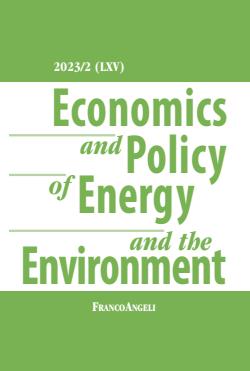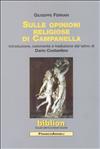The Energy Markets’ complexity and the need for a multilevel regulation - The energy markets are very complex, because, on the one hand, they imply several different activities and, on the other hand, they involve various levels of govern- 183 ment. The energy market is divided indeed in different segments: supply (generation or purchasing), transmission, distribution and sale, which are allocated at different levels of government, from the international and European level (with reference to the security of energy supply), to the local level (with specific regard to the distribution and sale). This complexity makes the energy sector particularly critical, under the pressure of political interests and economical needs. Another sensitive point is linked with the environmental protection, since the consumption of energy is one of the most polluting human activities, and the demand of energy is growing up together with the economical growth of the developing Countries. This problem is increasingly discussed at the international level, with reference to the climate change issue, in order to plan a sustainable development for the whole globe: because of it, the Kyoto Protocol was issued within the United Nation Framework Convention on Climate Change. It establishes legally binding commitments for the reduction of four greenhouse gases for all the 183 ratifying Countries, according the principle of common but differentiated responsibilities, and provides for the promotion of renewable energy. The European Union ratified the Protocol implementing the relative obligations through, for instance, the creation of the EU Emissions Trading Scheme (ETS). The European Union most of all addressed the competitive issue, since the 70s, in order to achieve the result to create a free energy market in Europe. The last results of the European energy policy were the directives on electricity and natural gas in 2004, that imposed the complete opening of the energy markets in almost all the European Countries (with few exceptions). The implementation of the European directives requires the intervention of the national level, since each Country has to modify its own regulatory framework, in order to comply with the directives. Everywhere in Europe, this process faces with several difficulties, but it is particularly hard in Italy, since the energy sector is traditionally public owned. Indeed, in our Country, the privatization and liberalization processes are strictly linked to another trend: the decentralization of legislative and administrative powers from the State to the Regions and Local Communities. Thus it is evident that the global governance of the energy sector, for its complexity and its sensibility, can only derive from a network of interventions by several levels of government, and different international, national and local actors, which realize a typical case of multilevel governance.
Key words: Energy markets, competition, sustainable development, multilevel governance.
JEL classifications: K21, K23.
Parole chiave: Mercato energetico, concorrenza, sviluppo sostenibile, multilevel Governance.







